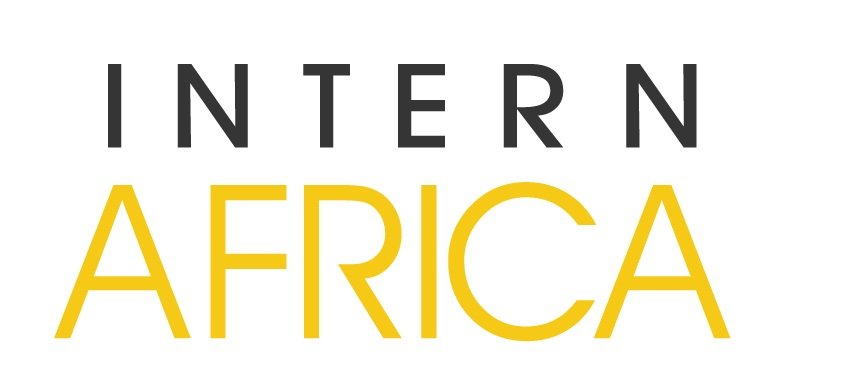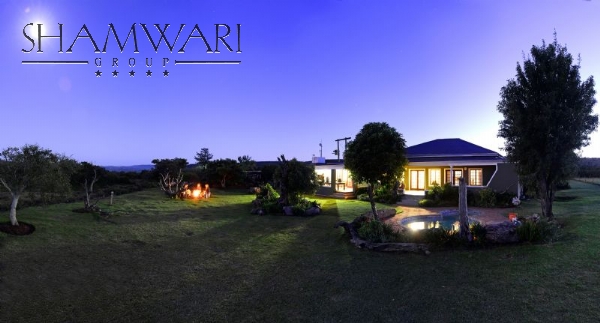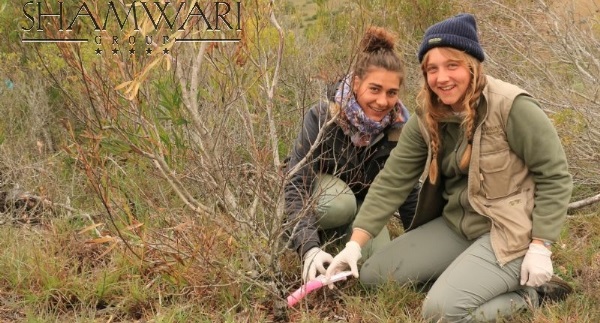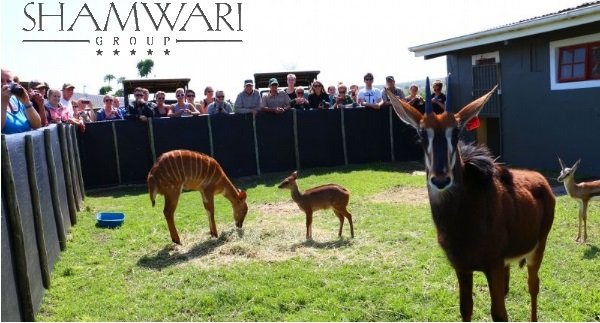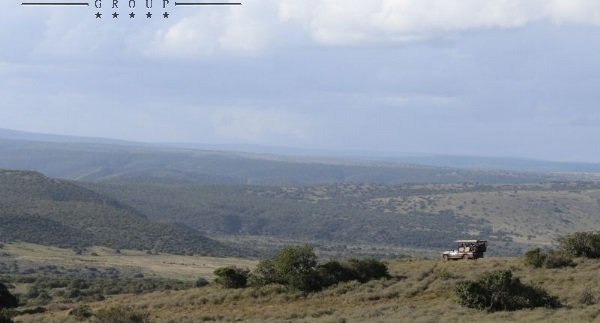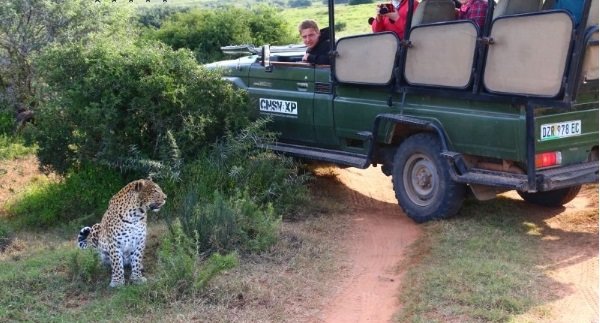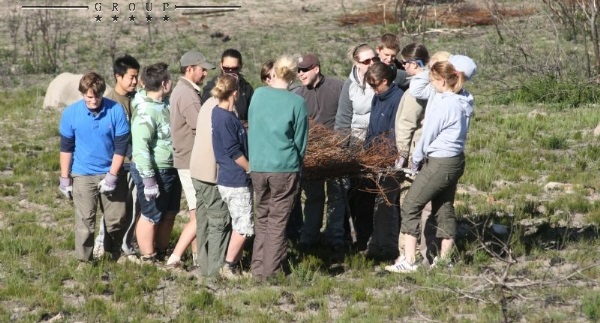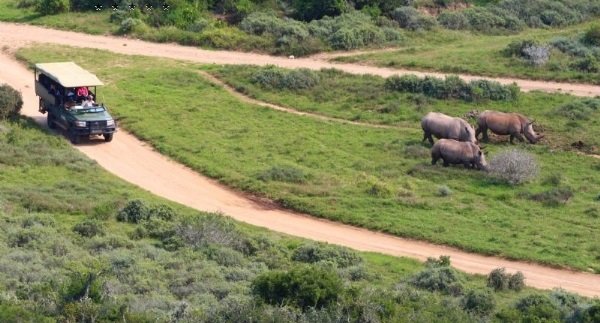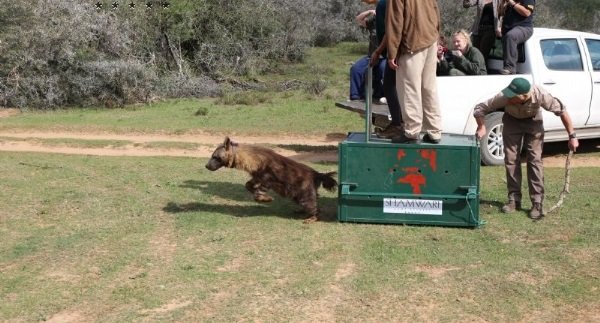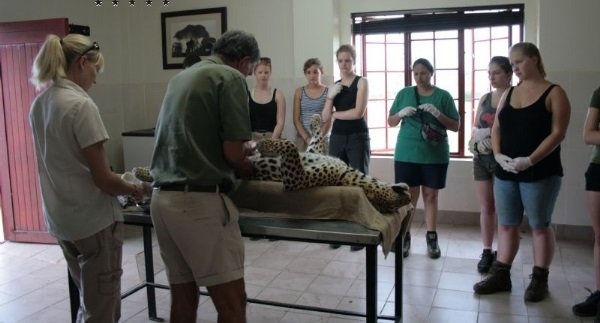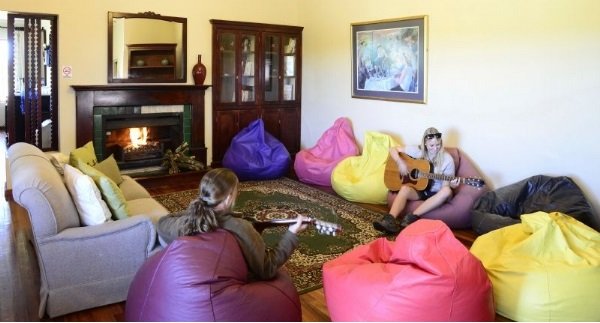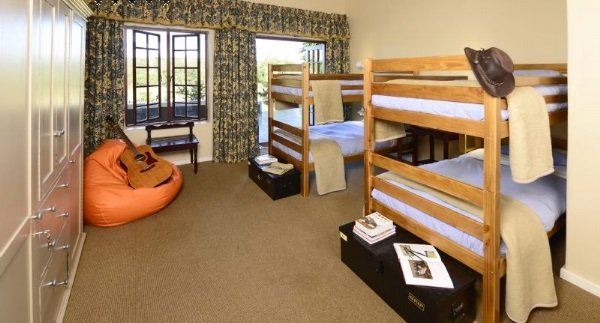South Africa
SHAMWARI CONSERVATION VOLUNTEER PROGRAM
CONSERVATION VOLUNTEERING ABROAD
One of our exciting conservation volunteer opportunities in Africa. Volunteers, adventure seekers, eco-tourists or anyone wanting to make a real difference is welcome to make their unique and lasting mark at any of the facilities that The Shamwari Conservation Experience has to offer.
While learning specialized skills and intricate knowledge on the animals both in and around the Reserve, participants have the opportunity to gain first-hand, hands-on experience while working directly with the animals.
The Shamwari Conservation Experience has hosted, and is open to, volunteers, gap-year participants, adventure seekers, adult sabbatical seekers, and anyone interested in learning and acquiring specialized knowledge and experience throughout the field of conservation. Shamwari offers participants the opportunity to focus on the conservation of indigenous African wildlife and ecology, as well as getting involved in various community education, outreach and upliftment programs. As part of the social responsibility drive of the Reserve, participating in community sporting events and improving the lives of the communities shared with the local residents is paramount, and a high priority for the program itself. Located a mere hour and a half from Port Elizabeth’s medical facilities, airport and other amenities, this malaria-free zone is ideally situated. The absolute abundance of natural resources in and around the Reserve will be navigated through by safari-type game viewing vehicles with an experienced and expert guide, as well as a qualified conservationist.
An all-inclusive conservation experience is the most rewarding and beneficial experience. Caring for and protecting Africa’s unique and endangered wildlife is a feeling near-impossible to compare
While learning specialized skills and intricate knowledge on the animals both in and around the Reserve, participants have the opportunity to gain first-hand, hands-on experience while working directly with the animals.
The Shamwari Conservation Experience has hosted, and is open to, volunteers, gap-year participants, adventure seekers, adult sabbatical seekers, and anyone interested in learning and acquiring specialized knowledge and experience throughout the field of conservation. Shamwari offers participants the opportunity to focus on the conservation of indigenous African wildlife and ecology, as well as getting involved in various community education, outreach and upliftment programs. As part of the social responsibility drive of the Reserve, participating in community sporting events and improving the lives of the communities shared with the local residents is paramount, and a high priority for the program itself. Located a mere hour and a half from Port Elizabeth’s medical facilities, airport and other amenities, this malaria-free zone is ideally situated. The absolute abundance of natural resources in and around the Reserve will be navigated through by safari-type game viewing vehicles with an experienced and expert guide, as well as a qualified conservationist.
An all-inclusive conservation experience is the most rewarding and beneficial experience. Caring for and protecting Africa’s unique and endangered wildlife is a feeling near-impossible to compare
- Age: min. 18
- Location: near Port Elizabeth
- Requirements: 18 years, good physical fitness, flexible
- Group size: max 20 participants
- Project duration: 1 week - 3 months
- Laundry: Laundry is done once a week
- WIFI: 100mb @ R20, 500mb @ R100, 1 gig @ R150
- Linen/towels: Linen provided, you need to bring your own towels with
P
You will have the privilege of participating in either a long, or short-term conservation projects at the award-winning Shamwari Wildlife and Conservation Department, exposing them to a multitude of various components regarding conservation, wildlife and the community work involved. The facilities are geared around hosting and serving the guests on a two-per-room-shared basis, providing volunteers with the full range of the reserves day-to-day operational requirements, while at the same time learning the vastness of the resources that need to be properly and effectively managed. The lodging is located in the far North-East corner of the reserve, aptly named after Dr Ian Player, a man instrumental in saving the Southern African White Rhino from extinction throughout the 1960’s.
Long-Term Projects and Possible Activities
The entire list of task, projects and activities available are far too many to mention, and a full list can be found by joining our Facebook, Twitter or Instagram. These will also help to keep you up to date with the happening in and around the reserve as they happen.
Game Monitoring: Rhino, Elephant, Predators
The monitoring of the animals and the collection of their data assists in the decision making function of the Reserve’s management, as well as allowing for the calculation of various carrying capacities and the like of the reserve at any one time. These are conducted during the Annual Game Count and are essential to the continuity and sustainability of the Reserve. Through this regular monitoring and observation, individual animals are able to be recognised and readily identified, helping to better monitor family structure and dynamics, as well as feeding patterns and spatial ecology of the animal. Additionally, the above game counts assist the reserve in establishing the predator to prey ratio, further aiding in the Reserve’s calculation of sustainability efforts and progress.
Telemetry Tracking Monitoring
Telemetry tracking monitoring is performed mainly on the high-profile animals within the Reserve, and include animals such as leopards and cheetah. This specific type of monitoring is used for animals with a particularly illusive nature. This is due to the neighbouring farms carrying livestock and other easy prey items for Africa’s premier big cats. Restoration and Rehabilitation of Reserve Landscapes Restoring the land to its most natural state is part and parcel of the Shamwari Conservation Experience, and would not be complete without it. This include the clearing and removing of old and worn fences, as well as restoring and rehabilitating the land back to its original splendour, degraded by erosion and the over-grazing of land by cattle and other forms of livestock.
Research Projects
Research projects that are undertaken by the Reserve are done so with a focus on the value-added outcome, both for the reserve, as well as for conservation efforts as a whole. These research projects are more often than not conducted with the aid, and under the influence, of local and foreign academic testing institutions. The capturing and collection of this critical data is done so to aid the natural species that less is known about. The Brown Hyena is a good example of one such specie. Alien Plant Control For reasons and uses no longer known, farmers brought in and made use of many invader and alien species that have now started causing problems for the local and indigenous vegetation. It is important that this toxic vegetation be removed and destroyed in order to increase the natural biodiversity in the area, while at the same time decreasing the risk of fires due to the natural vegetation’s fire retardant properties. This will also ensure the better preservation and protection of our natural and precious water resources.
Born Free Foundation Charity
The Born Free Foundation Charity, along with Shamwari Game Reserve are both whole-heatedly committed to the care and conservation of wildlife, creating awareness and education for both guests and the local communities within which the two organisations operate. Together they highlight the need and importance for the conservation and protection of natural resources and wildlife, as well as the maintenance and protection of the surrounding environments and habitat, all the while maintaining a humane and compassionate approach to the care and treatment of animals that are held in captivity.
There is no breeding with the cats done at the centre, rather it is a sanctuary for those Leopards and Lions that are unable to be reintroduced back into the wild for various reasons. Visitors who to the centre are educated on the harsh and often ill treatment of those animals that have been unfortunate enough to be held in captivity. This is a necessary part of the conservation drive and awareness, and plays a big role in raising awareness around these and other conservation issues. Tasks and duties completed by the volunteers include personalised tours of the behind the scenes happenings, maintenance assistance and enclosure cleaning, as well as other task that ensure the happiness and tranquil existence these animals deserve.
Animal Rehabilitation Centre (ARC)
The Animal Rehabilitation Centre at Shamwari Game Reserve was established with the aim of aiding the veterinary services offered by the Reserve’s rehabilitation centre, helping with the rescue and rehabilitation of injured and orphaned animals. Many of these animals coming from the surrounding communities and other game reserves. Participants and volunteers gain a host of hands-on experiences required during the rescue and care of the animals, serving the animals every need and requirements throughout the entirety of the operation. During their stay, a volunteers’ experience will range from mere observation, to more hands-on and practical engagement with the animals and the various animal care practices.
Community Projects
Social upliftment, education and social responsibility all play a large part in what the Shamwari Conservation Experience has to offer, and is a proud partner with many of the local communities. With a key emphasis placed on the education around the biodiversity of the region, as well as the focus on preserving and managing natural resources properly and correctly, is vital to the continued successes of this incredible initiative. Conservation does not stop at the animals, but extends to all reaches of every community that is part of the ecology of the land. An array of projects ranging from building and maintenance, construction of vegetable gardens for local communities, recycling projects, classroom painting and building jungle gyms, are all part and parcel of the weekly, or bi-weekly community outreach trips. Longer term involvement with these project further allows champions to be innovative in the areas of local job creation and community upliftment.
Although it is a secondary activity, the involvement within the community is a great responsibility and one that is taken seriously. It is best to keep the interest of the children that may be vulnerable in mind. Both staff and services providers should remain aware and vigilant at all times, while conducting themselves in a manner fitting to the Reserve’s reputation and responsible tourism practices. The main reasons for this are to avoid any forms of prejudice, abuse or discrimination.
General Reserve Maintenance
Possible activities around the reserve may include:
General Reserve Tasks
Although there are set daily tasks that need to be carried out, it is good to keep in mind that daily tasks are not set in stone as to allow for the prevailing conditions of the day to lead the way. Forms of learning and animal interactions involved both physical work, as well as through interactive lectures and other learning content. At any one time on the Reserve there are multiple animal monitoring projects on the go, assisting the Reserve management and research efforts through the capture of this vital and essential information.
The Born Free Foundation, Big Cat Rescue and Education Centres, and the Shamwari Animal Rehabilitation Centre (ARC) have made education and exposure important aspects of their themes, with the goal of recusing, rehabilitating and releasing big cats, as well as other animals, back into the wild. All the centres and foundations operating under the Shamwari Conservation Experience umbrella have a strict no-touch predator policy, aiming to keep wildlife in the wild, all the while focusing on the efforts of conservation and preservation of species.
A
Solo volunteers will be based in the North of the reserve and the facility can host up to 20 volunteers. There are ten-twin rooms, (same-sex shared basis), unless on special request as a couple. All rooms are en-suite, with shower, toilet and basin. The lodge facilities include communal lounge, dining and swimming pool, with outside boma (enclosure), for enjoying a relaxing evening around the fire and under the stars.
Communal facilities
• Outdoor boma area and fireplace
• Swimming pool
• Dining area
• Beverage storage fridge
• Lounge and entertainment area
• Television and access to local cable channels
• Desktop PC (Wi-Fi vouchers can be purchased on site)
• World Call Card telephone system
Meals
The project caters three meals a day throughout the week. You will either eat at the lodge or take with as a pre-packed serving in case of activities outside. Dietary requirements including vegetarian can be catered for, thus must be notified in advance. Generally on Friday you will receive a cooked breakfast. Although there are no facilities to service Kosher or Halaal requirements, this can be accommodated on request and availability at an additional cost. Juice, tea and coffee are provided, still and spring water and soft drinks will be for your own account and are available on site and with greater selection, from local trading store Madolos Retreat
Example of Menus:
A minimum stay at the Reserve is two consecutive weeks starting on a Monday, with the Reserve’s operations running from approximately 8am to 5pm daily. Although the Reserve’s activities for program participants runs from Monday to Friday, weekend work may be required of you if necessary. The needs of the animals are priority number one. Weekends and evenings are leisure time, allowing participants to soak up the local adventure scene while enjoying a host of extra mural activities.
Off-site extra mural activities can be easily organised through a local adventure tour operator, and range from cultural trips and tours, to days at the beach, horse riding, canoeing, quad bike riding, marine tours, and more. All these activities are conducted off-site, and are conducted at the cost to the client. Guests and the like to travel off the Reserve, are able to enjoy the peace and tranquillity the Reserve has to offer, taking full advantage of the soothing African surrounds
Programme
The world renowned Shamwari Game Reserve in South Africa is offering their volunteers a once in a lifetime opportunity to get involved in one of the most exciting wildlife and conservation experiences Africa has to offer. Get involved in the behind-the-scenes efforts of conservation, all the while showcasing the majesty that is the African wildlife, hands-on and in the most personal way. Pioneering and leading the way in both fauna and flora conservation, the Shamwari Conservation Experience would not be able to achieve this level of past, present and imminent future success without the necessary volunteer support and financial assistance. Shamwari Game Reserve offers their Eco-Tourists a luxury African safari destination like no other, utilizing the fully operational 25,000 hectare Big Five Game Reserve to its utmost capacity.You will have the privilege of participating in either a long, or short-term conservation projects at the award-winning Shamwari Wildlife and Conservation Department, exposing them to a multitude of various components regarding conservation, wildlife and the community work involved. The facilities are geared around hosting and serving the guests on a two-per-room-shared basis, providing volunteers with the full range of the reserves day-to-day operational requirements, while at the same time learning the vastness of the resources that need to be properly and effectively managed. The lodging is located in the far North-East corner of the reserve, aptly named after Dr Ian Player, a man instrumental in saving the Southern African White Rhino from extinction throughout the 1960’s.
Long-Term Projects and Possible Activities
The entire list of task, projects and activities available are far too many to mention, and a full list can be found by joining our Facebook, Twitter or Instagram. These will also help to keep you up to date with the happening in and around the reserve as they happen.
Game Monitoring: Rhino, Elephant, Predators
The monitoring of the animals and the collection of their data assists in the decision making function of the Reserve’s management, as well as allowing for the calculation of various carrying capacities and the like of the reserve at any one time. These are conducted during the Annual Game Count and are essential to the continuity and sustainability of the Reserve. Through this regular monitoring and observation, individual animals are able to be recognised and readily identified, helping to better monitor family structure and dynamics, as well as feeding patterns and spatial ecology of the animal. Additionally, the above game counts assist the reserve in establishing the predator to prey ratio, further aiding in the Reserve’s calculation of sustainability efforts and progress.
Telemetry Tracking Monitoring
Telemetry tracking monitoring is performed mainly on the high-profile animals within the Reserve, and include animals such as leopards and cheetah. This specific type of monitoring is used for animals with a particularly illusive nature. This is due to the neighbouring farms carrying livestock and other easy prey items for Africa’s premier big cats. Restoration and Rehabilitation of Reserve Landscapes Restoring the land to its most natural state is part and parcel of the Shamwari Conservation Experience, and would not be complete without it. This include the clearing and removing of old and worn fences, as well as restoring and rehabilitating the land back to its original splendour, degraded by erosion and the over-grazing of land by cattle and other forms of livestock.
Research Projects
Research projects that are undertaken by the Reserve are done so with a focus on the value-added outcome, both for the reserve, as well as for conservation efforts as a whole. These research projects are more often than not conducted with the aid, and under the influence, of local and foreign academic testing institutions. The capturing and collection of this critical data is done so to aid the natural species that less is known about. The Brown Hyena is a good example of one such specie. Alien Plant Control For reasons and uses no longer known, farmers brought in and made use of many invader and alien species that have now started causing problems for the local and indigenous vegetation. It is important that this toxic vegetation be removed and destroyed in order to increase the natural biodiversity in the area, while at the same time decreasing the risk of fires due to the natural vegetation’s fire retardant properties. This will also ensure the better preservation and protection of our natural and precious water resources.
Born Free Foundation Charity
The Born Free Foundation Charity, along with Shamwari Game Reserve are both whole-heatedly committed to the care and conservation of wildlife, creating awareness and education for both guests and the local communities within which the two organisations operate. Together they highlight the need and importance for the conservation and protection of natural resources and wildlife, as well as the maintenance and protection of the surrounding environments and habitat, all the while maintaining a humane and compassionate approach to the care and treatment of animals that are held in captivity.
There is no breeding with the cats done at the centre, rather it is a sanctuary for those Leopards and Lions that are unable to be reintroduced back into the wild for various reasons. Visitors who to the centre are educated on the harsh and often ill treatment of those animals that have been unfortunate enough to be held in captivity. This is a necessary part of the conservation drive and awareness, and plays a big role in raising awareness around these and other conservation issues. Tasks and duties completed by the volunteers include personalised tours of the behind the scenes happenings, maintenance assistance and enclosure cleaning, as well as other task that ensure the happiness and tranquil existence these animals deserve.
Animal Rehabilitation Centre (ARC)
The Animal Rehabilitation Centre at Shamwari Game Reserve was established with the aim of aiding the veterinary services offered by the Reserve’s rehabilitation centre, helping with the rescue and rehabilitation of injured and orphaned animals. Many of these animals coming from the surrounding communities and other game reserves. Participants and volunteers gain a host of hands-on experiences required during the rescue and care of the animals, serving the animals every need and requirements throughout the entirety of the operation. During their stay, a volunteers’ experience will range from mere observation, to more hands-on and practical engagement with the animals and the various animal care practices.
Community Projects
Social upliftment, education and social responsibility all play a large part in what the Shamwari Conservation Experience has to offer, and is a proud partner with many of the local communities. With a key emphasis placed on the education around the biodiversity of the region, as well as the focus on preserving and managing natural resources properly and correctly, is vital to the continued successes of this incredible initiative. Conservation does not stop at the animals, but extends to all reaches of every community that is part of the ecology of the land. An array of projects ranging from building and maintenance, construction of vegetable gardens for local communities, recycling projects, classroom painting and building jungle gyms, are all part and parcel of the weekly, or bi-weekly community outreach trips. Longer term involvement with these project further allows champions to be innovative in the areas of local job creation and community upliftment.
Although it is a secondary activity, the involvement within the community is a great responsibility and one that is taken seriously. It is best to keep the interest of the children that may be vulnerable in mind. Both staff and services providers should remain aware and vigilant at all times, while conducting themselves in a manner fitting to the Reserve’s reputation and responsible tourism practices. The main reasons for this are to avoid any forms of prejudice, abuse or discrimination.
General Reserve Maintenance
Possible activities around the reserve may include:
- he capture of game and other wildlife veterinary work
- Camp outs on this world-renowned Big Five reserve
- Reserve orientation and nature walks
- Assisting with night patrols, as well as with the anti-poaching patrols
General Reserve Tasks
Although there are set daily tasks that need to be carried out, it is good to keep in mind that daily tasks are not set in stone as to allow for the prevailing conditions of the day to lead the way. Forms of learning and animal interactions involved both physical work, as well as through interactive lectures and other learning content. At any one time on the Reserve there are multiple animal monitoring projects on the go, assisting the Reserve management and research efforts through the capture of this vital and essential information.
The Born Free Foundation, Big Cat Rescue and Education Centres, and the Shamwari Animal Rehabilitation Centre (ARC) have made education and exposure important aspects of their themes, with the goal of recusing, rehabilitating and releasing big cats, as well as other animals, back into the wild. All the centres and foundations operating under the Shamwari Conservation Experience umbrella have a strict no-touch predator policy, aiming to keep wildlife in the wild, all the while focusing on the efforts of conservation and preservation of species.
A
Accommodation, meals & facilities
LodgingSolo volunteers will be based in the North of the reserve and the facility can host up to 20 volunteers. There are ten-twin rooms, (same-sex shared basis), unless on special request as a couple. All rooms are en-suite, with shower, toilet and basin. The lodge facilities include communal lounge, dining and swimming pool, with outside boma (enclosure), for enjoying a relaxing evening around the fire and under the stars.
Communal facilities
• Outdoor boma area and fireplace
• Swimming pool
• Dining area
• Beverage storage fridge
• Lounge and entertainment area
• Television and access to local cable channels
• Desktop PC (Wi-Fi vouchers can be purchased on site)
• World Call Card telephone system
Meals
The project caters three meals a day throughout the week. You will either eat at the lodge or take with as a pre-packed serving in case of activities outside. Dietary requirements including vegetarian can be catered for, thus must be notified in advance. Generally on Friday you will receive a cooked breakfast. Although there are no facilities to service Kosher or Halaal requirements, this can be accommodated on request and availability at an additional cost. Juice, tea and coffee are provided, still and spring water and soft drinks will be for your own account and are available on site and with greater selection, from local trading store Madolos Retreat
Example of Menus:
- Breakfast: cereal and toast, muesli and yoghurt, muffins and toast, cooked breakfast.
- Lunch: sandwiches, wraps and potato salad, quiche and pasta salad, burgers and chips.
- Dinner: macaroni and cheese with green salad, roasted chicken with vegetables, traditional meals for example braai and potjie (local type of meal similar to stew).
A minimum stay at the Reserve is two consecutive weeks starting on a Monday, with the Reserve’s operations running from approximately 8am to 5pm daily. Although the Reserve’s activities for program participants runs from Monday to Friday, weekend work may be required of you if necessary. The needs of the animals are priority number one. Weekends and evenings are leisure time, allowing participants to soak up the local adventure scene while enjoying a host of extra mural activities.
Off-site extra mural activities can be easily organised through a local adventure tour operator, and range from cultural trips and tours, to days at the beach, horse riding, canoeing, quad bike riding, marine tours, and more. All these activities are conducted off-site, and are conducted at the cost to the client. Guests and the like to travel off the Reserve, are able to enjoy the peace and tranquillity the Reserve has to offer, taking full advantage of the soothing African surrounds
Dates
Arrival is every Monday in Port Elizabeth before 12h30 noon.
Rates
| Duration | Fee |
|---|---|
| 2 weeks | 29000 ZAR |
| 3 weeks | 41750 ZAR |
| 4 weeks | 52000 ZAR |
- All on site meals
- Shared accommodation
- Linen/bedding
- Laundry once a week
- Shared transfers from Port Elizabeth airport to project
- Cleaning twice weekly
- All on reserve activities
- Tea
- Coffee
- Flights to Port Elizabeth
- Visa costs (where applicable)
- Insurance costs (medical as well as personal items)
- Alcohol and additional snack food and beverage items you wish to purchase.
- WIFI
- Beverages
- Optional activities
Click here to sign up.
